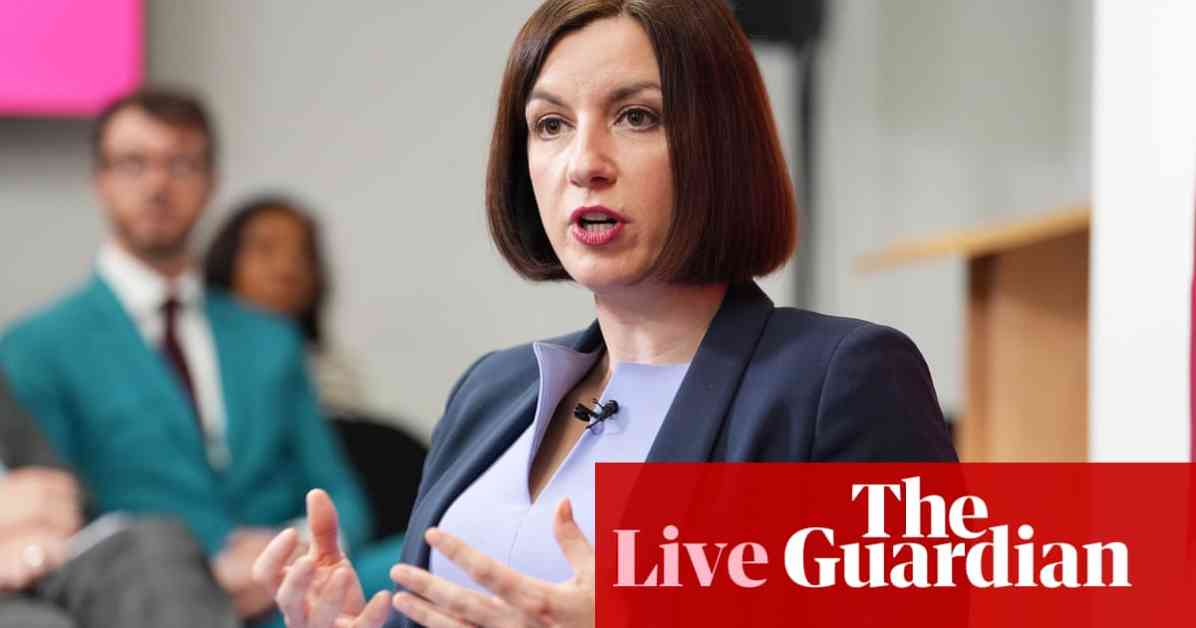Katharine Birbalsingh, a renowned headteacher known for her success at Michaela School in London, has recently made headlines for her scathing criticism of Education Secretary Bridget Phillipson. In an open letter shared on social media, Birbalsingh accused Phillipson of harboring a “Marxist ideological dislike of academies” and questioned her commitment to raising educational standards.
The letter highlighted a tense meeting between the two educators, where Birbalsingh claimed that Phillipson showed little interest in learning from the success of Michaela, a non-selective inner-city school that has achieved remarkable results. Birbalsingh’s frustration was palpable as she expressed disappointment in Phillipson’s lack of engagement and curiosity about the strategies and values that have propelled Michaela to excellence.
Birbalsingh’s critique extended to Phillipson’s handling of academy schools and the proposed schools bill, which aims to restrict certain freedoms enjoyed by academies. She raised valid concerns about the potential impact of these changes on the ability of schools to tailor their curricula and maintain high standards. Birbalsingh’s impassioned plea for a more collaborative approach to education policy resonated with many who value the input and expertise of educators in shaping educational reform.
Phillipson’s response to the letter was limited, with a spokesperson for the Department of Education citing the meeting as a private conversation held in good faith. However, a government source familiar with the meeting disputed Birbalsingh’s account, painting a different picture of the interaction and emphasizing the need for constructive dialogue in education policy discussions.
The clash between Birbalsingh and Phillipson underscores the ongoing debate around educational standards, school autonomy, and the role of government in shaping education policy. As stakeholders on both sides of the argument continue to advocate for their positions, the future of academies and curriculum freedoms remains uncertain.
Expert Insights on Educational Policy
In response to Birbalsingh’s accusations and the broader discussion around education policy, experts in the field have highlighted the importance of collaboration and open communication between policymakers and educators. Dr. Sarah Johnson, a professor of education policy, emphasized the need for policymakers to engage with frontline educators to understand the practical implications of policy decisions.
“Effective education policy requires a deep understanding of the challenges and opportunities within schools,” Dr. Johnson stated. “By listening to teachers and school leaders, policymakers can develop solutions that are grounded in the reality of the classroom.”
Implications for School Leadership and Autonomy
The conflict between Birbalsingh and Phillipson also raises questions about the balance between school leadership autonomy and government oversight in the education system. As schools grapple with changing regulations and curriculum requirements, leaders like Birbalsingh are advocating for more flexibility to innovate and meet the diverse needs of their students.
Dr. Michael Chen, a specialist in educational leadership, noted the importance of empowering school leaders to make decisions that best serve their communities. “School autonomy can be a powerful tool for driving innovation and improvement,” Dr. Chen explained. “It’s crucial for policymakers to consider the impact of their decisions on the day-to-day operations of schools and the learning experiences of students.”
As the debate over academies, curriculum freedoms, and educational standards continues to unfold, the voices of educators like Katharine Birbalsingh serve as a reminder of the vital role teachers and school leaders play in shaping the future of education. By fostering a collaborative and respectful dialogue between policymakers and practitioners, the education system can work towards meaningful and sustainable improvements for all students.







